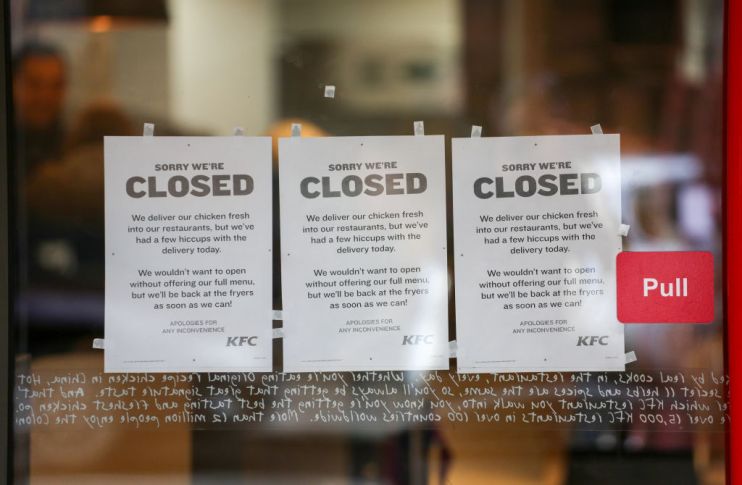The right way for your business to deliver bad news

Every business has to deliver bad news from time to time — whether it is a delay, a data breach, or a price hike. Of course, these can be tricky situations to navigate.
It’s easy to sound good when you’re telling people about the wonderful products and services that you offer. It’s much harder when you’re telling them that they’re going to be four hours late getting home.
This is something that we get asked about a lot at my brand writing agency. Is it best to cushion the blow? Should we keep things formal when we’re saying sorry? Here’s what I think.
Mistakes were made
It’s tempting to fall back on safe, noncommittal language, or bury bad news at the end of a long email. But this can be a big mistake.
An obvious example is the “non-apology apology”. When the Equifax breach compromised the personal details of 143m Americans (almost half the US population), this was the company’s official statement: “Earlier this year, Equifax experienced a security incident involving a payroll-related service. The incident was reported to customers, affected individuals and regulators.”
It’s cold, passive, and doesn’t really take responsibility for what went wrong. Unsurprisingly, it just made people angrier.
Now is not the time to boast
It can also be tempting to soften an apology by reminding customers of all the great things that you do. But that’s tricky to pull off.
For instance, Ryanair delivered the news that it was shrinking its fleet — and therefore cancelling flights — with an odd boast: “Ryanair, Europe’s largest airline, today confirmed it will slow down its growth this winter, by flying 25 less aircraft.”
Reminding customers of the benefits that you offer can be wise if, say, you’re increasing prices. But drop the hard sell, fast.
Winner winner, chicken dinner
The best corporate apologies share two qualities: they sound human, and are consistent with the brand’s standard communications.
You probably heard about KFC running out of chicken last year. Its response — a full-page ad in The Sun — was note-perfect: “A chicken restaurant without any chicken. It’s not ideal. Huge apologies to our customers, especially those who travelled out of their way to find we were closed.”
It’s humble, honest, empathetic, and feels consistent with the brand’s usual voice. It feels genuine, which turned a crisis into a triumph.
The power of planning
So how do you deliver an apology this good? One essential tactic is to plan ahead. If a crisis hits, you want to be ready for it — not formulating strategies in a panic.
Tone of voice guidelines generally focus only on “good news”. But we encourage our clients to explore a range of scenarios — the good, the bad, and the just plain boring — so that they’re ready for anything.
Armed with the right strategy, saying sorry doesn’t have to be a disaster. In fact, as KFC showed, it could be one of the best things that you ever do.